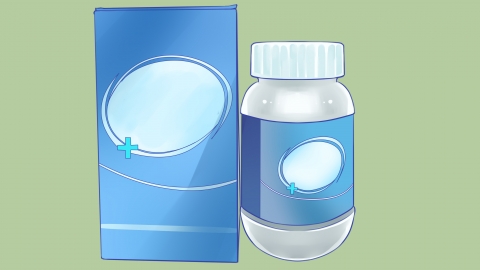What type of calcium supplement is best for leg cramps in patients over 30?
Generally, muscle cramps in the feet among patients over 30 years old are often related to insufficient calcium intake or poor calcium absorption. In particular, middle-aged and elderly individuals experience accelerated calcium loss, making them more prone to muscle spasms. Patients may follow medical advice to supplement with medications such as calcium carbonate D3 tablets, calcium gluconate tablets, calcium lactate tablets, calcium citrate tablets, and calcium carbonate tablets. Detailed information is as follows:
1. Calcium Carbonate D3 Tablets
These contain calcium carbonate and vitamin D3. Calcium carbonate is a common source of calcium with high elemental calcium content; vitamin D3 promotes intestinal calcium absorption and reduces calcium loss. This formulation is suitable for daily calcium supplementation in individuals over 30, helping to relieve foot cramps caused by calcium deficiency, especially those with limited sun exposure or vitamin D deficiency.

2. Calcium Gluconate Tablets
Containing calcium gluconate as the calcium source, these tablets have good water solubility and cause minimal gastrointestinal irritation. Their absorption does not require large amounts of gastric acid, making them suitable for individuals over 30 with weak gastrointestinal function. They can rapidly replenish calcium, alleviate muscle spasms, and improve symptoms of foot cramps.
3. Calcium Lactate Tablets
Composed primarily of calcium lactate, these tablets provide a moderate amount of calcium and place minimal burden on the gastrointestinal tract during absorption. They do not require significant gastric acid for absorption, making them ideal for individuals over 30 with average gastrointestinal function or those requiring long-term calcium supplementation. They release calcium slowly, help maintain stable blood calcium levels, and reduce the frequency of foot cramp episodes.
4. Calcium Citrate Tablets
With calcium citrate as the calcium source, these tablets do not require large amounts of gastric acid for absorption and can be taken on an empty stomach or with meals. They are suitable for individuals over 30 who have reduced gastric acid secretion, such as some middle-aged women or those taking acid-suppressing medications long-term. These tablets effectively replenish calcium and relieve foot cramps caused by calcium deficiency.
5. Calcium Carbonate Tablets
Primarily composed of calcium carbonate, these tablets offer high calcium content and cost-effectiveness. They are suitable for individuals over 30 without significant gastrointestinal discomfort. They should be taken with meals to utilize gastric acid for enhanced absorption, thereby supplementing the body’s calcium needs and improving foot cramps resulting from abnormal muscle excitability.
In daily life, it's important to consume more calcium-rich foods such as milk, soy products, and leafy green vegetables. Moderate sun exposure helps promote vitamin D synthesis, which aids calcium absorption. Avoid excessive fatigue and other potential triggers of foot cramps. If symptoms persist despite calcium supplementation, seek timely medical evaluation to rule out other underlying causes.




